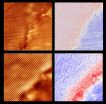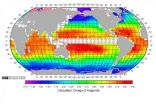Moderate drinking is healthy only for some people
2014-11-10
(Press-News.org) The study included 618 Swedes with coronary heart disease and a control group of 3,000 healthy subjects. The subjects were assigned to various categories based on the amount of alcohol they consumed (ethanol intake). Meanwhile, they were tested in order to identify a particular genotype (CETP TaqIB) that previous studies had found to play a role in the health benefits of alcohol consumption.
Protective effect
The results, which have been published in Alcohol, confirm the findings of the earlier studies. Moderate consumption of alcohol helps protect people with the genotype against coronary heart disease.
"In other words, moderate drinking has a protective effect among only 15% of the general population," says Professor Dag Thelle, Professor Emeritus at Sahlgrenska Academy, University of Gothenburg.
Sweeping advice
Thus, the researchers believe that the advice frequently given about the health benefits of moderate alcohol consumption is far too sweeping.
"Moderate drinking alone does not have a strong protective effect," says Professor Lauren Lissner, who also participated in the study. "Nor does this particular genotype. But the combination of the two appears to significantly reduce the risk of coronary heart disease."
Unknown mechanisms
The genotype codes for the Cholesterylester transfer protein (CETP), which affects the 'good,' cardio-protective HDL cholesterol that helps remove excess lipids from the blood vessels. One hypothesis is that alcohol somehow affects the CETP in a way that benefits HDL cholesterol.
A second hypothesis is that alcohol contains healthy, protective antioxidants.
The researchers believe that one or both of the hypotheses may prove correct, but the mechanisms by which HDL cholesterol or antioxidants might act remain unknown.
"Our study represents a step in the right direction," Professor Thelle says, "but a lot more research is needed. Assuming that we are able to describe these mechanisms, it may be a simple matter one day to perform genetic testing and determine whether someone belongs to the lucky 15%. That would be useful to know when offering advice on healthy alcohol consumption. But the most important thing is to identify new means of using the body's resources to prevent coronary heart disease."
INFORMATION:
The article CETP TaqIB genotype modifies the association between alcohol and coronary heart disease: The INTERGENE case-control study was published online in Alcohol on September 17, by lead author Kirsten Mehlig and colleagues.
Link to article: http://www.sciencedirect.com/science/article/pii/S0741832914200565
Contact:
Professor Dag Thelle, Sahlgrenska Academy, University of Gothenburg
phone +46 709-458024
epidag@gmail.com
Professor Lauren Lissner, Sahlgrenska Academy, University of Gothenburg
phone +46 31-7866847, +46 708-207343
lauren.lissner@gu.se
[Attachments] See images for this press release:


ELSE PRESS RELEASES FROM THIS DATE:
2014-11-10
Men with low levels of DHEA in the blood run an increased risk of developing coronary heart disease events. The Sahlgrenska Academy study has been published in the Journal of the American College of Cardiology.
The term prohormone refers to the precursor of a hormone. DHEA is a prohormone that is produced by the adrenal glands and can be converted to active sex hormones. While the tendency of DHEA levels to fall with age was discovered long ago, the biological role of the prohormone is largely unknown.
Researchers at Sahlgrenska Academy, University of Gothenburg, have ...
2014-11-10
INDIANAPOLIS -- A Regenstrief Institute and Eskenazi Health study reports on an innovative program that trains and supervises volunteers who act as advocates for adults and seniors who are unable to make their own decisions due to conditions like Alzheimer's disease or coma, but have no family or friends to help them. The study found that the program could serve as a national model to replace or complement the frequently overwhelmed guardianship services provided by state agencies from coast to coast.
Incapacitated patients who lack surrogates present a complex problem ...
2014-11-10
OAK RIDGE, Tenn., Nov. 10, 2014--Scientists at the Department of Energy's Oak Ridge National Laboratory have made the first direct observations of a one-dimensional boundary separating two different, atom-thin materials, enabling studies of long-theorized phenomena at these interfaces.
Theorists have predicted the existence of intriguing properties at one-dimensional (1-D) boundaries between two crystalline components, but experimental verification has eluded researchers because atomically precise 1-D interfaces are difficult to construct.
"While many theoretical ...
2014-11-10
Autoimmune diseases like Crohn's Disease and multiple sclerosis, in which the immune system attacks its own body rather than predatory invaders, affect 5-20% of the global community. A study published recently in Autoimmunity Reviews by Prof. Yehuda Shoenfeld, the Laura Schwarz-Kipp Chair for Research of Autoimmune Diseases at Tel Aviv University's Sackler Faculty of Medicine and Head of Zabludowicz Center for Autoimmune Diseases at Chaim Sheba Medical Center, Tel Hashomer, points to the major role obesity plays in triggering and prolonging these autoimmune diseases.
According ...
2014-11-10
Stanford, CA--Photosynthesis is probably the most well-known aspect of plant biochemistry. It enables plants, algae, and select bacteria to transform the energy from sunlight during the daytime into chemical energy in the form of sugars and starches (as well as oils and proteins), and it involves taking in carbon dioxide from the air and releasing oxygen derived from water molecules. Photosynthetic organisms undergo other types of biochemical reactions at night, when they generate energy by breaking down those sugars and starches that were stored during the day.
Cells ...
2014-11-10
A team of scientists has published the most comprehensive picture yet of how acidity levels vary across the world's oceans, providing a benchmark for years to come as enormous amounts of human-caused carbon emissions continue to wind up at sea.
"We have established a global standard for future changes to be measured," said Taro Takahashi, a geochemist at Columbia's Lamont-Doherty Earth Observatory who published the maps with his colleagues in the August issue of the journal Marine Chemistry. The maps provide a monthly look at how ocean acidity rises and falls by season ...
2014-11-10
Research scientists at VTT Technical Research Centre of Finland have demonstrated a new technique for generating electrical energy. The new method can be used in harvesting energy from mechanical vibrations of the environment and converting it into electricity. Energy harvesters are needed, for example, in wireless self-powered sensors and medical implants, where they could ultimately replace batteries. In the future, energy harvesters can open up new opportunities in many application areas such as wearable electronics.
Research scientists at VTT have successfully generated ...
2014-11-10
New Rochelle, NY, November 10, 2014--To understand their risk for hereditary forms of cancer, such as breast and colon cancer, women need to know their family history. The design and effectiveness of a 20-minute skills-based intervention that can help women better communicate with relatives and gather and share information about cancer family history is described in a study in Journal of Women's Health, a peer-reviewed publication from Mary Ann Liebert, Inc., publishers. The article is available free on the Journal of Women's Health website at http://online.liebertpub.com/doi/full/10.1089/jwh.2014.4754 ...
2014-11-10
A new drug combination for rheumatoid arthritis treats the disease just as well as other intensive treatment strategies but with less medication and fewer side effects at a significantly lower cost. Doctoral researcher Diederik De Cock (KU Leuven) describes the strategy in a new study published in Annals of Rheumatic Diseases.
Rheumatoid arthritis (RA) is a chronic auto-immune disease that causes pain and stiffness in the joints, fatigue, bone damage and, eventually, loss of mobility. RA afflicts around 1% of people in the western world; in Belgium, 80,000 to 100,000 ...
2014-11-10
Hidden away in the tropical darkness of nocturnal Madagascar, scientists have discovered a new species of gecko which has been described in the open access journal Zoosystematics and Evolution.
A master of disguise, the new species Paroedura hordiesi has camouflage pattern to blend with its natural habitat, while climbing on rocks and the ruins of an old fort, where it was spotted by scientists.
Home of the new gecko, the karstic limestone massifs in the region of northern Madagascar are believed to still harbour further undescribed reptile species, some of which might ...
LAST 30 PRESS RELEASES:
[Press-News.org] Moderate drinking is healthy only for some people







